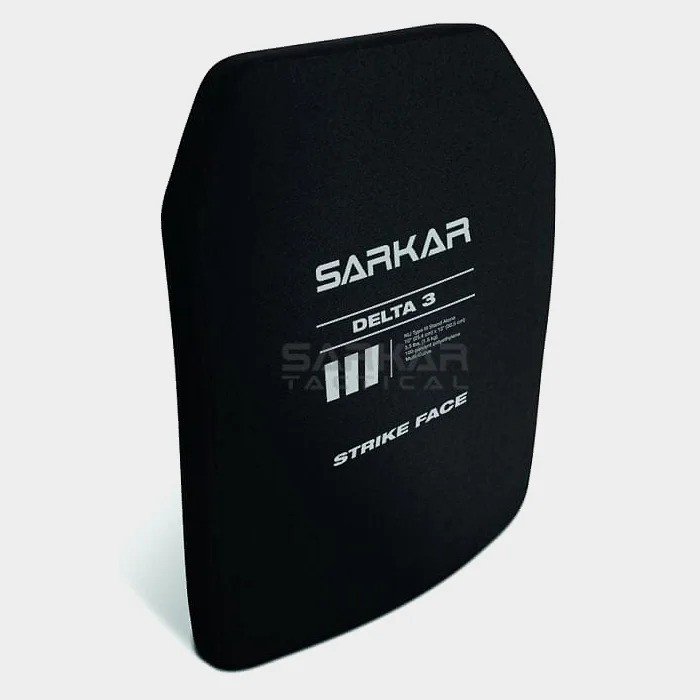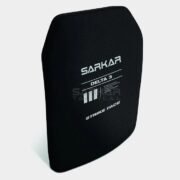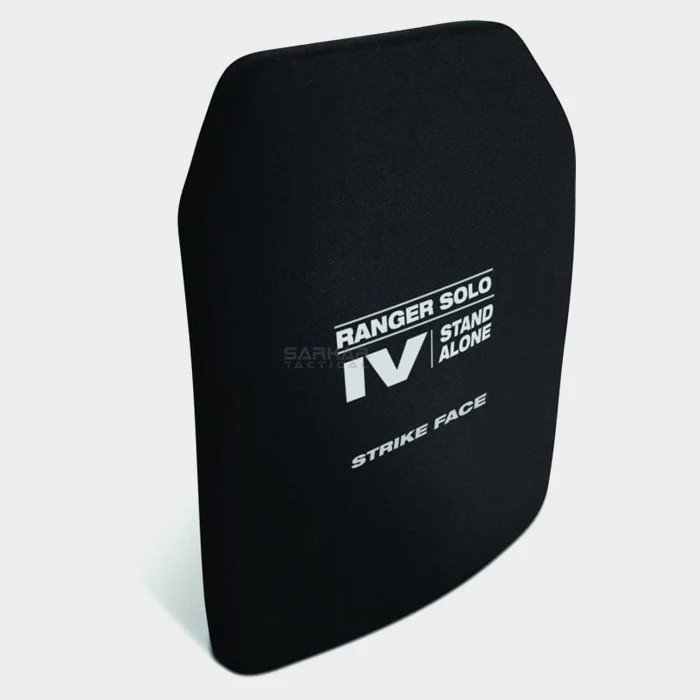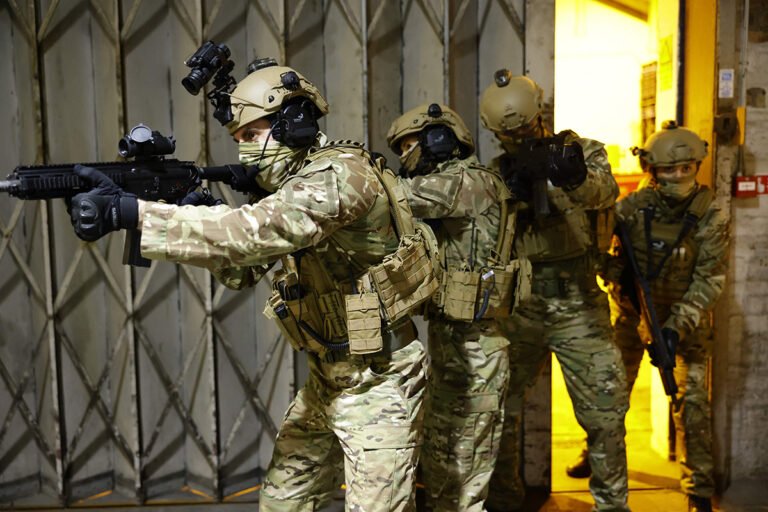Level 3 body armour is designed to withstand assault rifle calibre rounds. This NIJ certified level is a crucial component of modern ballistic protection systems.
In this guide from Sarkar Tactical, we explain the specifications and capabilities of Level 3 body armour. We provide a comprehensive understanding of its protective abilities, the ballistic testing standards it must undergo, and the criteria that define Level 3 body armour.
Table of Contents
- What Calibre Rounds Can Level 3 Body Armour Stop?
- What Can Penetrate Level 3 Body Armour?
- Conclusion: What Does Level 3 Body Armour Stop?
- Level 3 Body Armour Plates and More At Sarkar Tactical
What Calibre Rounds Can Level 3 Body Armour Stop?
This lightweight 10” x 12” Level III plate reduces spall and has a multi-curved shape to fit the body comfortably.
Level 3 body armour is engineered to withstand a range of ballistic threats, including rifle rounds.
This armour level is designed to resist calibres up to 7.62mm Full Metal Jacket (FMJ) lead core rifle ammunition, which is commonly encountered in military combat situations. FMJ rounds can pose a significant threat to personal safety and security, as this calibre is known for its penetration power and kinetic energy.
Whether facing armed adversaries or operating in high-risk situations, individuals equipped with level 3 body armour can rely upon its ability to defend against assault rifle (and below) calibres of ammunition.
What Can Penetrate Level 3 Body Armour?
Level 3 body armour provides protection against a range of ballistic threats. It is also essential to understand its limitations and vulnerabilities. Despite its high level of ballistic resistance, certain ammunition types and conditions can penetrate this armour level.
While Level 3 body armour is designed to stop specific calibres and types of ammunition, projectiles travelling at exceptionally high velocities or with specialised penetrator tips may be able to defeat its protective capabilities.
Repeated impacts in the same area or sustained fire from heavy weaponry may also compromise the integrity of Level 3 body armour. This can potentially lead to penetration or partial failure.
While Level 3 body armour provides robust protection against rifle rounds, it may be less effective against armour-piercing ammunition.
How Much Do Level 3 Plates Weigh?
As a general guideline, Level 3 plates typically weigh between 3 to 4 pounds each. However, the weight of level 3 plates may vary based on size, material composition, and manufacturer specifications.
At Sarkar Tactical, our level 3 plates are on the lighter end of the scale. This allows users to retain a good level of mobility, and NIJ level certified protection. Generally, when using level 3 plates in a plate carrier, you will be using both front and rear inserts. This means that you are carrying around 6-10 pounds of ballistic protection in your vest.
When selecting level 3 plates, make sure you consider the weight of each plate, and how this may affect your movement. Especially if you are also adding site plates to your plate carrier set-up.
What Size are Level 3 Body Armour Plates?
Level 3 plates are generally around 10” x 12” inches (254 x 305 mm). This is to provide a good coverage area of the back or torso. This size reduces spall, and plates are usually made with a multi-curved shape to fit the body comfortably.
Remember to check what size ballistic plates your plate carrier can take before purchasing an armour that may not fit correctly.
Where Can You Store Level 3 Body Armour?
Store your Level 3 body armour in a cool, dry place away from direct sunlight and moisture. Excessive heat and humidity can degrade the materials and compromise the ballistic protection properties of the armour.
When not in use, lay your body armour flat on a sturdy surface to prevent warping or deformation of the plates. Avoid hanging or folding the armour, as this can damage the protective materials and reduce its effectiveness.
Ensure that the storage area is well-ventilated to allow for air circulation around the body armour. This helps prevent the build-up of odours and moisture.
What are the Different Levels of Body Armour?
Body armour is classified into different levels. These levels are based on its ability to protect against various ballistic threats. The National Institute of Justice (NIJ) sets the standards for body armour levels.
Read our full guide to the different levels of body armour to learn more.
Body Armour Levels Chart
Here is the current body armour levels chart from the NIJ:
| Former Threat Level | New Threat Level | Notes |
| NIJ Level II | NIJ HG1 | HG = handgun |
| NIJ Level IIIA | NIJ HG2 | |
| NIJ Level III | NIJ RF1 | RF = rifle |
| NA | NIJ RF2 | NIJ RF2 is a new intermediate rifle protection level that includes all the threats at the NIJ RF1 protection level plus an additional threat |
| NIJ Level IV | NIJ RF3 |
Conclusion: What Does Level 3 Body Armour Stop?
Level 3 body armour stands as a barrier against a wide range of ballistic threats. Particularly, rifle rounds such as 7.62mm FMJ lead core ammunition. Through design and testing, Level 3 body armour offers a reliable level of protection for individuals operating in combat situations.
By understanding the capabilities and limitations of Level 3 body armour, users can make informed decisions regarding which level of body armour they require for their operations.
Level 3 Body Armour Plates and More At Sarkar Tactical
At Sarkar Tactical, we manufacture and supply a range of NIJ Level certified body armour. Discover our level 3 body armour plates, level 3a plates, or level 4 plates.
We design, craft, test, and supply all of our equipment, including helmets, armour, EOD and demining equipment, and tactical communications gear.
If you want to find out more about us, learn how we test our armour, or explore our blog section.





